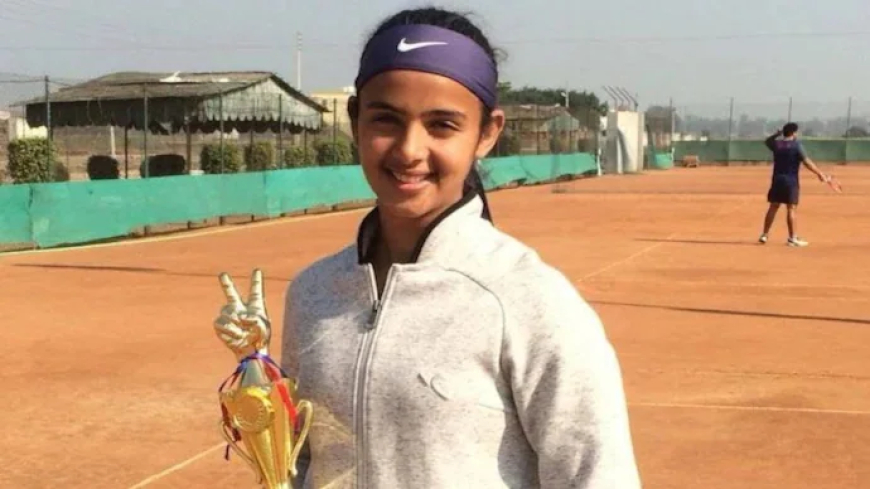Tragedy in Gurgaon's Kitchen: Rising Tennis Coach Fatally Shot by Father
Radhika Yadav, 25, a state-level tennis coach in Gurgaon, was shot dead by her father amid family tensions over her independence and income.

By Ronald Kapper
Published: July 11, 2025
Introduction
A shocking act of violence reverberated through Gurgaon's Sushant Lok neighborhood on the morning of July 10. 25-year-old state-level tennis player and coach, Radhika Yadav, was shot dead by her father, Deepak Yadav, while preparing breakfast—an incident that has left the community stunned and spotlighted issues of domestic tension and mental health.
How It Happened
Around 10:30 am, Radhika stood in her kitchen when Deepak entered and fired five shots from his licensed revolver. Three bullets struck her in the back, resulting in immediate death, according to police. Neighbors initially mistook the sound for a pressure-cooker blast until they realized the severity and rushed to help.
Radhika’s uncle, who was downstairs, discovered her lying motionless on the floor and transported her to a nearby hospital, where she was pronounced dead on arrival. Deepak remained at the scene and was detained by police, who recovered the firearm and registered an FIR for murder under Section 302 of the Indian Penal Code and relevant provisions of the Arms Act.
Radhika’s Journey
Born in 2000, Radhika rapidly rose through Haryana’s tennis ranks. She earned an ITF doubles ranking inside the top 120 and was a consistent performer in state-level tournaments. Far from just playing, she launched her own tennis academy in Gurgaon, mentoring young athletes with structured training routines and mental coaching—making her a respected figure in local sports circles.
Despite her growing success, her achievements incited tension at home. Radhika's income shifted family dynamics, challenging traditional gender roles and triggering her father's sense of inadequacy, according to law enforcement sources.
A Family Under Pressure
Investigators revealed Deepak's motive stemmed from deep-seated resentment: he claimed to have faced persistent humiliation in his native village—branded as being financially dependent on his daughter. His frustration over Radhika’s self-sufficiency and her refusal to shutter her academy reportedly escalated into confrontation. The night before the shooting, family conflict reportedly flared over her financial independence, setting the stage for tragedy.
Radhika’s mother, already overwhelmed, stayed away from home following a tense argument earlier that week. The police believe her absence may have emboldened Deepak’s actions. Deepak’s mental state is now under scrutiny, with forensic psychiatrists set to determine whether he was fully aware of his actions.
Grieving a Coach and Role Model
The mourning has been palpable. Students at Radhika’s academy, some as young as eight, gathered in silence, placing tennis rackets and framed certificates at the entry. They remembered her as an unwavering mentor who infused confidence and discipline, going beyond drills to instill life skills and belief.
Former coaches recall a determined athlete: disciplined in her regimen, always early, always prepared. Her death abruptly ended a journey that held promise—not only for her sporting talent but for her growing influence in youth development through sport.
Larger Conversations
This tragedy has triggered broader societal reflection. Experts point to the intersection of patriarchy, mental health, and gender complexion in domestic violence. Deepak's inability to accommodate a successful, independent woman—his own daughter—fits into a distressing pattern where women's achievements are viewed as threats to male identity.
Legal and mental health professionals allege that cases like this expose vulnerabilities in support systems: a lack of accessible family counseling, limited mental-health education, and insufficient intervention mechanisms when gender-role conflicts emerge. Activists are calling for enhanced mental health outreach, comprehensive public awareness, and more robust domestic-violence counseling infrastructure.
Police Action and Legal Follow-Up
Following Deepak’s arrest, he was presented in court, which granted police custody for further questioning. Investigators are now probing firearm licensing records, the exact trigger of the dispute, and whether Deepak had signaled intent to harm earlier. Ballistics teams and forensic experts have begun analysis, while structured interviews of relatives are underway.
The police have also urged anyone with information—including neighbors who heard shouting or other disturbances—to come forward. They aim to establish a clear pattern of conflict and assess whether protective measures could have been invoked before the breakdown.
Looking Ahead
As forensic findings emerge and psychiatric evaluations proceed, society watches for how this case is handled in court—will Deepak be found mentally unfit, or will bolstered evidence show premeditation and culpability?
Meanwhile, efforts are underway to ensure Radhika’s students receive emotional support. Local sports authorities are considering scholarships in her name to preserve her legacy and support aspiring athletes from financially challenged backgrounds.
Conclusion
Radhika Yadav's murder is a brutal reminder of the complex intersection between family dynamics, gender roles, and mental wellbeing. She represented a new wave of female empowerment—innovative, enterprising, and independently successful. Her untimely death must compel us to build stronger familial and societal mechanisms to prevent such tragedies.











